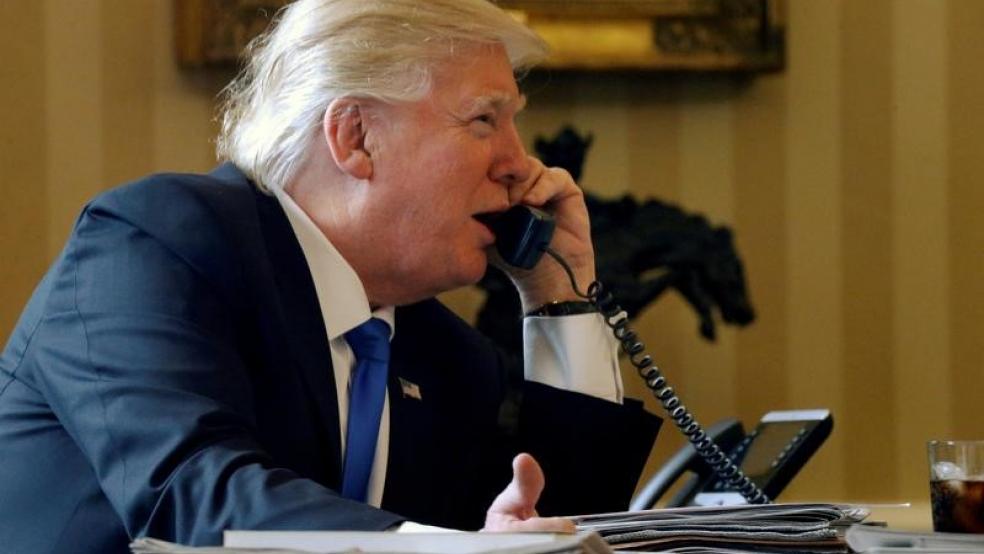As the swirl of controversy surrounding President Trump continues to grow, it threatens to absorb so much attention in Washington that the ambitious Republican legislative agenda is now likely to face significant delays. That’s not necessarily a major problem for some of what the GOP leaders want to accomplish. Tax cuts and regulatory rollbacks can keep for a year. But when it comes to the effort to repeal and replace the Affordable Care Act, the costs of delay could be very real for millions of Americans who buy their insurance on the exchanges created under the law.
A combination of factors -- including flaws in the law itself and purposeful neglect by Republicans in Congress -- has made the health insurance markets in many parts of the country seriously unstable. Health policy experts have repeatedly said that many of the issues with the law could be fixed but GOP leaders have consistently said that the only solution is the complete elimination of the law, and they have refused to take steps necessary to stabilize the markets.
Related: GOP Plan Could Raise Premiums for 6 Million People with Pre-Existing Conditions
To have the ACA exchanges struggling gives a convenient boost to the GOP’s preferred narrative: That they are working to “rescue” the country from a disaster visited on it by the previous Democratic administration.
But an arguably cynical strategy for building public support for an ACA replacement is now looking downright dangerous, given the current political climate. That’s because Washington tends toward legislative paralysis when major scandals unfold, and recent revelations that Trump has blurted out highly classified intelligence in the presence of Russian leaders and that former FBI Director James Comey believes Trump tried to pressure him to stop an investigation of one of the president’s associates are nothing if not major scandals.
That creates the real possibility that the health insurance exchanges, which are already showing large pockets of instability across the country, could plummet into a full-blown crisis, and that Congressional Republicans, still a long way from passing a comprehensive health care reform bill, might have nothing to offer in their place.
“There is a lot of uncertainty that insurers are facing right now around what this market is going to look like even later this year,” said Cynthia Cox, associate director of the Kaiser Family Foundation’s Program for the Study of Health Reform and Private Insurance. “And that uncertainty is causing them to price premiums higher than they otherwise would and contributing to them exiting the market.”
Related: GOP Struggles to Explain AHCA’s $880 Billion Medicaid Cuts
Among other things, insurers are not sure whether the administration is going to abandon enforcement of the individual mandate, which requires people to have insurance, or if it will continue paying subsidies meant to compensate insurers for offering lower premiums to low-income consumers.
It’s not too late to bring a measure of stability to the market, Cox said, but the Trump administration, currently in the best position to take quick action, shows no interest in doing so.
“There are still things the Trump administration can do to either stabilize or destabilize the market,” she said. “And right now the Trump administration is acting in a way that is destabilizing the market by not providing insurers with information they need about whether these payments will continue to be made and whether the mandate will continue to be enforced.”
If the year drags on with no assistance for the struggling exchanges and no legislative progress on a replacement for the current system, there could be serious consequences.
“Some parts of the country could have no insurance company on the exchange,” Cox said. “Others could have insurers on the exchange, but with higher premiums than they otherwise would have. It could be a mix, particularly in rural areas. Some states or counties could have no insurer options, and you could have people losing coverage there. Other states might have an insurer option, but with higher premiums so people who aren’t getting subsidies may also drop their coverage if they can’t afford to continue it.”
Related: How Trump Can Score a Big, Bipartisan Win on Health Care
Insurers who say they plan to remain in the exchanges are increasingly putting caveats on their participation when they file their intentions with government regulators.
“Even companies that have indicated that they plan to participate in the exchanges this year have included language saying that they might pull out or they might raise premiums even more if they don’t get more clarity by June,” Cox said.
And the biggest worry is that if mass pullouts start, they’ll be impossible to stop.
“One exit can cause a cascade of other exits, especially if insurers were on the fence about participating,” she said. “They don’t necessarily want to be the last one in the market.”





